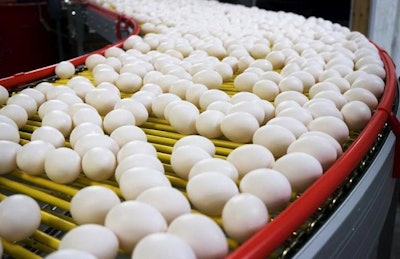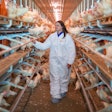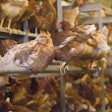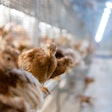
In response to your most recent editorial publication entitled: "Cage-free eggs are three times more expensive in Mexico," Humane Society International (HSI) would like to give the following answer: We could not agree more that the movement has enormous momentum and if the situation in the U.S. is an indicator, then the future of egg production will not include battery cages.
The world is changing, people have a different idea about animals compared to 60 years ago, or even 20 years ago; as it is shown in a recent study in Mexico. The conventional method of confining hens in small wire cages, so tightly that they can not even stretch their wings, is considered unacceptable and unpopular.
However, what we have seen, refers not only to the development of ethical thinking, but science. Animal welfare research has shown that animals have behavioral needs, strongly rooted in their biological urges to express natural behavior, and if they are thwarted, there will real physiological and psychological consequences. Layers are curious in nature, active animals with a complex series of behaviors including foraging, perching, dust bathing and nesting. They are surprisingly intelligent. The science of animal welfare is a growing discipline, impacting the way we think and redesign housing systems for production animals, in order to improve the quality of life of animals, providing solutions for these important natural behaviors. Agriculture is not static, new technology and innovation, such as aviary systems for laying hens are only part of the natural progression of the industry. We can improve without the use of cages.
Regarding the price concern of cage-free eggs, we can see that the the Bachoco cage-free brand costs MXN 321 and organic brands such as Finca Guayacán or Aires de Campo range from MXN 57-632, approximately. It would be wrong to say that cage-free production is triple compared to the cost of conventional egg production3, since the Bachoco option is 21.8 percent4 higher, and not 300 percent, as mentioned. Currently, and as far as we know, Bachoco is the only company offering cage-free eggs in supermarkets, since other trademarks are either free-range or organic, and are actually more expensive. However, in the case of cage-free eggs, increasing the cost of production it is low and it is affected by the cost of packing, sorting, transport and marketing. The increase in the real cost to the consumer, if it would be the only one transferred to the consumer, would be about two cents (USD) per egg5. The retail price will be reduced when cage-free eggs become the basis and free-range and organic options are extended from it.
The answer concerning our goals is simple: We want housing systems for production animals to respect their welfare and provide a decent life, allowing them to express key natural behaviors; something consumers intuit and science demonstrates. Producers in the United States are adopting new systems, because they are interested in meeting the consumers expectations, providing better care for their animals. Surely egg producers in Mexico want the same thing, especially considering the wave of cage-free policies (not free-range or organic) announced by several of the leaders of the food industry in Mexico, including Grupo Bimbo, Toks Group, Alsea, CMR, McDonald's, Burger King, Compass Group and IHG.
Comprehensive resource for cage-free eggs available
A new collection of exclusive articles, blogs and infographics on Cage-free Eggs and Consumer Trust in the Poultry Industry, written by trusted WATT Global Media editors and industry experts will equip egg producers and marketers with information to help them make critical business decisions. Purchase your copy.
1. Prices of January 10, 2017 from La Comer supermarket, Mexico City.
2. Prices of January 10, 2017 from La Comer supermarket, Mexico City.
3. The price of a dozen eggs ranges from MXN 20 to 25.50 in supermarkets such as: Superama, Soriana and La Comer.
4. Considering a conventional dozen egg of Bachoco costs MXN 25, and Bachoco Cage Free MXN 32.
5. According to the US-based production system studies.

















